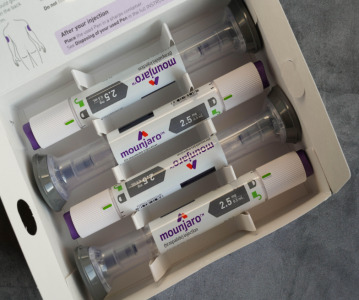BMS receives FDA approval for Opdivo Injection for metastatic colorectal cancer

Approval based on CheckMate -142, in which Opdivo demonstrated an objective response rate of 28% among patients who received prior treatment with a fluoropyrimidine, oxaliplatin, and irinotecan.
Bristol-Myers Squibb (BMS) has received FDA approval for Opdivo (nivolumab) injection for intravenous use for the treatment of adult and pediatric (12 years and older) patients with microsatellite instability-high (MSI-H) or mismatch repair deficient (dMMR) metastatic colorectal cancer (mCRC) that has progressed following treatment with a fluoropyrimidine, oxaliplatin, and irinotecan.
Approval for this indication has been granted under accelerated approval based on overall response rate (ORR) and duration of response. Continued approval for this indication may be contingent upon verification and description of clinical benefit in confirmatory trials. The recommended dose is 240 mg administered as an intravenous infusion over 60 minutes every 2 weeks until disease progression or unacceptable toxicity. In the CheckMate -142 trial, among patients who received prior treatment with a fluoropyrimidine, oxaliplatin and irinotecan, 28% responded to treatment with Opdivo. The percentage of patients with a complete response was 1.9% and the percentage of patients with a partial response was 26%. Among these responders, the median duration of response was not reached. Among all enrolled patients, 32% responded to treatment with Opdivo; 2.7% experienced a complete response, 30% experienced a partial response.
“As part of our commitment to address hard-to-treat cancers, with today’s approval, Opdivo provides a new treatment option for these patients who have historically faced a poor prognosis,” said Chris Boerner, president, US Commercial, BMS. “This approval is one example of how our commitment to translational medicine and investigating predictive biomarkers may help us discover treatment approaches to address different patients’ unique needs.”
“Patients with metastatic colorectal cancer who have dMMR or MSI-H tumors are less likely to respond to conventional chemotherapy,” said Heinz-Josef Lenz, Terrence Lanni Chair in Gastrointestinal Cancer Research, University of Southern California. “While the challenges of treating these patients have been significant, tumours characterized by these biomarkers are immunogenic. Therefore, advances in immunotherapy research are encouraging in presenting new treatment options for appropriate patients with MSI-H metastatic colorectal cancer.”
Related News
-
News PSCI Welcomes Delpharm, Samsung Biologics, and Suven as First Supplier Partners
The pharmaceutical industry continues to evolve with an increasing focus on responsible sourcing, sustainability, and collaboration across the supply chain. Under a new model to recognise suppliers within the pharmaceutical and healthcare industry that... -
News Drug prices agreed upon as part of the US Inflation Reduction Act
The Inflation Reduction Act brought into constitution by the Biden administation in 2022, which proposed a drug price negotiation between the government and pharmaceutical companies, has reached it's first agreement. -
News Eisai Alzheimer’s drug authorised in UK but still faces obstacles
In partnership with BioArctic AB, pharmaceutical company Eisai has been granted Marketing Authorisation by the Medicines and Healthcare products Regulatory Agency (MHRA) for its Alzheimer’s disease drug product Leqembi. -
News Eli Lilly's weight loss drugs removed from the FDA's shortage list
The US FDA have recently updated their drug shortage list. The recently released list shows that all dosage forms of Eli Lilly's weight-loss drug Zepbound and their diabetes drug Mounjaro are now available. -
News Global advancements in the diagnosis and treatment of rare diseases: Rare Disease Day 2024
Rare Diseases Day is celebrated on the 29th February 2024 and represents the plight of rare disease patients to gain diagnosis and access to suitable treatment. -
News Pharmaceutical industry supports COP28 health stance in joint statement
As COP28 takes place over this week in Dubai, UAE, several bodies in the pharmaceutical and health industries have come together to announce support of key movements in sustainability in the sector, and to recognise sustainability as a health issue.&nb... -
News Biden backs Cold-War measures to shore-up medical supply chains
In a recent strategy to combat rising inflation and the cost of living crisis, President Joe Biden has invoked a Cold War-era act to increase investment in a selection of medicines and supplies. -
News CPHI Podcast Series: What does the changing US Pharma market mean for industry and patients alike?
In this week's episode of the CPHI Podcast Series Lucy Chard, Digital Editor for CPHI Online is joined by James Manser to discuss the political and market changes in the US pharma field.
Position your company at the heart of the global Pharma industry with a CPHI Online membership
-
Your products and solutions visible to thousands of visitors within the largest Pharma marketplace
-
Generate high-quality, engaged leads for your business, all year round
-
Promote your business as the industry’s thought-leader by hosting your reports, brochures and videos within your profile
-
Your company’s profile boosted at all participating CPHI events
-
An easy-to-use platform with a detailed dashboard showing your leads and performance


.png)




